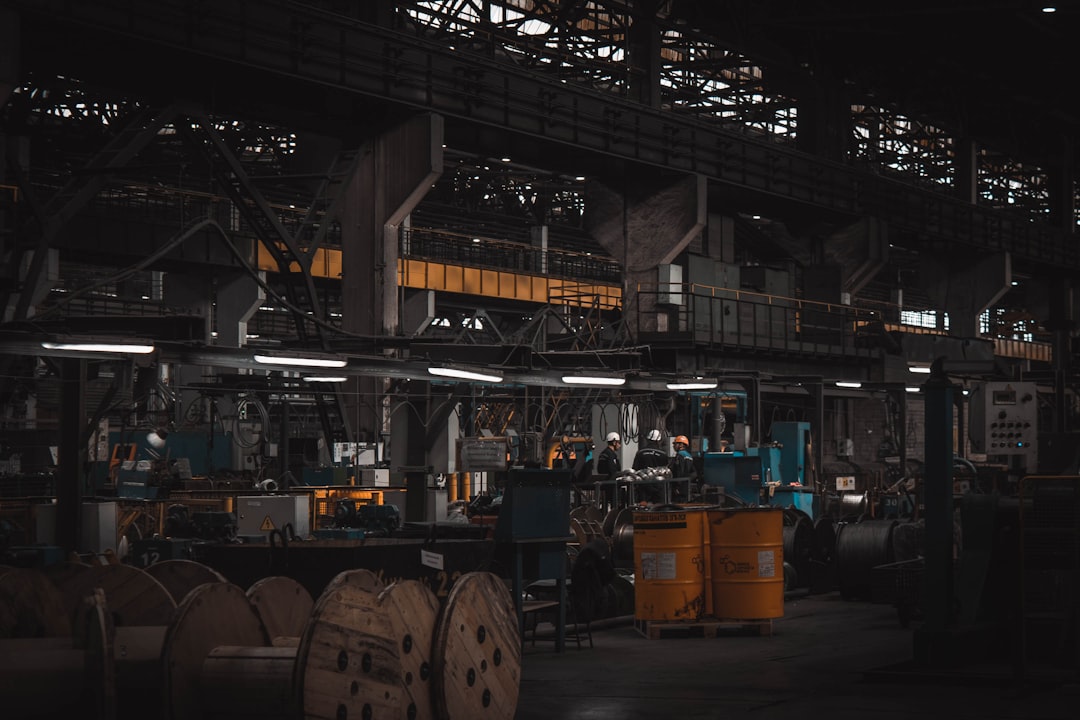The steel industry, a cornerstone of global infrastructure and manufacturing, is undergoing a dramatic transformation. Digitalization is no longer a futuristic concept; it’s the driving force behind increased efficiency, transparency, and profitability in steel commerce. This post explores the multifaceted impact of digital technologies on the steel industry, examining how they are reshaping every aspect of the business, from procurement to delivery.
Optimizing the Steel Supply Chain with Digital Tools
The steel supply chain is notoriously complex, involving numerous intermediaries, geographically dispersed operations, and intricate logistics. Digitalization offers a powerful solution to streamline this process. Real-time tracking of materials using RFID and GPS technologies provides unparalleled visibility into inventory levels, shipment status, and potential bottlenecks. Predictive analytics, powered by big data and AI, can forecast demand fluctuations and optimize production schedules, minimizing waste and maximizing efficiency. Furthermore, advanced planning and scheduling software can coordinate activities across the entire supply chain, ensuring timely delivery and reducing lead times.
Enhancing Steel Trading and E-commerce Platforms
The traditional methods of steel trading, often involving lengthy negotiations and paperwork, are being rapidly replaced by sophisticated e-commerce platforms. These platforms provide a centralized marketplace for buyers and sellers to connect, negotiate prices, and execute transactions efficiently. Digital contract management systems automate the process of creating, signing, and managing contracts, reducing the risk of errors and disputes. Online platforms also facilitate the secure exchange of documents and information, improving transparency and trust between parties. The integration of AI-powered chatbots and virtual assistants can further enhance the customer experience, providing instant support and answers to common queries.
Leveraging Big Data and Analytics for Smarter Decision-Making
The vast amounts of data generated throughout the steel supply chain represent a treasure trove of insights. Big data analytics tools can process this data to identify trends, patterns, and anomalies that would otherwise go unnoticed. This information can be used to improve forecasting accuracy, optimize pricing strategies, and identify areas for cost reduction. For example, analyzing historical sales data can help predict future demand, allowing steel producers to adjust production levels accordingly. Similarly, analyzing market trends can inform pricing decisions, maximizing profitability while remaining competitive.
The Role of Artificial Intelligence (AI) and Machine Learning (ML) in Steel Production
AI and ML are revolutionizing steel production processes, from raw material selection to quality control. AI-powered systems can optimize the blast furnace operations, reducing energy consumption and improving product quality. Machine learning algorithms can analyze sensor data from production lines to predict equipment failures, enabling proactive maintenance and minimizing downtime. Furthermore, AI can enhance the efficiency of quality control processes, identifying defects and inconsistencies in real-time. This leads to improved product quality, reduced waste, and enhanced customer satisfaction.
Blockchain Technology: Ensuring Transparency and Traceability in the Steel Industry
Blockchain technology offers a secure and transparent way to track the movement of steel products throughout the supply chain. Each transaction and stage of the process is recorded on the blockchain, creating an immutable record that can be accessed by all authorized parties. This enhanced traceability helps to combat counterfeiting, improve supply chain security, and ensure compliance with industry regulations. Furthermore, blockchain can facilitate secure payments and streamline documentation processes, reducing administrative overhead and improving efficiency.
The digital transformation of the steel industry is an ongoing process, with new technologies and applications constantly emerging. By embracing these innovations, steel companies can gain a significant competitive advantage, improve operational efficiency, and enhance customer relationships. The future of steel commerce is undeniably digital, and those who adapt quickly will be best positioned for success.
SEO Tags:
- Digitalization in Steel Industry
- Steel Supply Chain Optimization
- AI in Steel Manufacturing
- Blockchain in Steel Commerce
- Steel E-commerce Platforms




